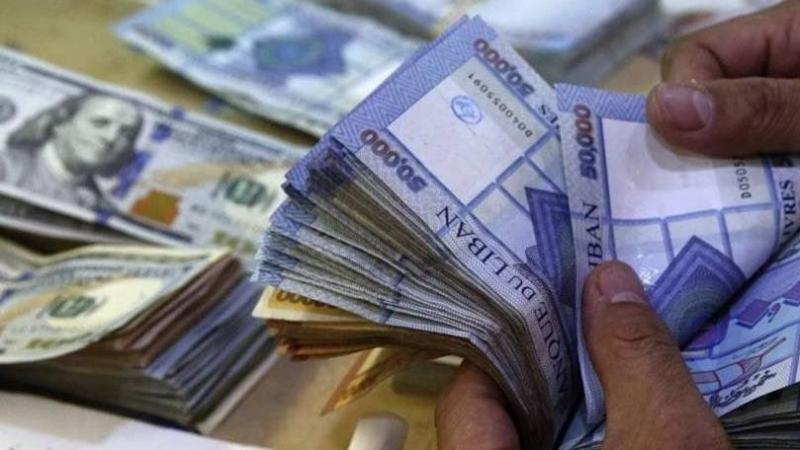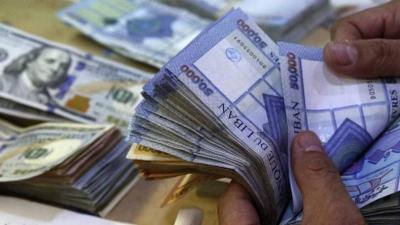Economic and social sectors in the country are collapsing like "dominoes." Public sector departments are closed due to a strike by employees for nearly two weeks. Employees of the Central Bank are holding a warning strike today, and there is no water, electricity, gasoline, or bread. The mechanical departments are inactive, and even the property registration process has stopped... In short, the country is halted and inactive.
What made matters worse was the news that there would be no salaries for public sector employees at the end of this month due to the general strike being carried out. However, this disaster was averted as employees of the Budget Department in the Ministry of Finance announced the continuation of procedures to disburse salaries, which they had started before the strike began on the 21st of this month, with the aim of settling the election dues today.
The agreement reached yesterday between caretaker Prime Minister Najib Mikati and Minister of Finance Youssef Khalil to pay public sector salaries at the end of this month and for employees of the Budget Department to return to work solely for the purpose of completing salary disbursement procedures helped avoid a devastating consumer crisis that would fall upon employees who have already been on an open strike for nearly two weeks due to ongoing disputes over their low salaries and high transportation costs, along with the mandatory attendance at work.
Following the agreement for the return of employees of the Budget Department to work, they issued a statement yesterday emphasizing that "most of the work for the month of June has already been completed, having ensured work up to the 21st, and only a portion remains, which can be completed in a few days. Therefore, they will return to work and exert the effort they have always put in each month throughout the year without fatigue, but this time only to finalize salaries and pensions due for July and social assistance for March and April, without any transactions or transfers."
They confirmed that "the disbursement of salaries and pensions and social assistance is not at all a push of a button, as some believe, and it requires at least 14 to 15 working days each month before it is processed for payment, where it also needs a work team in the Treasury Department to transfer it to the Central Bank and then to banks. Any delay at the end of this month is not due to our strike but to our forced suspension because of the inability to continue."
The employees of the Budget Department warned all stakeholders about the dilemma of securing the cost of employee attendance at work for at least fifteen days per month and supporting their family with a salary ranging between two million and three million Lebanese pounds monthly, with the price of gasoline nearing seven hundred thousand Lebanese pounds, even if we include the social assistance of one and a half million Lebanese pounds. This solution must consider that work starts from the beginning of the month (i.e., the entitlements for August begin on the first days of July) to complete the social assistance and then salaries and pensions."
They expressed their inability to continue and cover attendance costs from this salary, the extent of which is well-known. Thus, salaries and pensions for the following months remain contingent on finding a solution.
**Salary Timing**
So does this mean that public sector employees will receive their salaries at the end of the month? Nawal Nasr, head of the Public Administration Employees Association, clarified to "Nidaa al-Watan" that only the election dues will be paid today, while the salary schedules will take time to prepare, and it is unknown how long they will take.
She pointed out that "employees of the Budget Department have resumed work solely for the purpose of paying salaries, but that does not mean they have 'ended' their strike; it simply represents internal work among colleagues for which they are appreciated."
"Nidaa al-Watan" learned from financial sources that "the procedures for salary disbursement will not take much time since the colleagues started them before their strike."
**Economic Implications**
But what if the employees of the Budget Department in the Ministry of Finance did not agree to manage the salaries of their colleagues in the public administrations? The number of public sector employees is around 350,000, and financial and banking consultant Nicolas Shekhani told "Nidaa al-Watan" that they represent a substantial cash block, ranging between 30% and 40% of consumption value; thus, not receiving their salaries at the end of the month would have negative repercussions on the private sector due to a contraction in consumer activity, and consequently on the economy as a whole.
He added, "The private sector depends on public sector employees who receive their salaries and spend them on buying food items such as potatoes, chicken, and fruits... If they do not receive their salaries, they will tighten their belts, which will reflect on consumer activity and consequently on the private sector."
He noted that the expatriates, on whom we are counting in the upcoming months, will save us and drive tourism activity, but that is not enough; we need to stimulate economic and consumer activity linked to productivity.
Shekhani warned of a complete collapse and what is referred to as a "blackout" of the country because what is happening in the country is incredibly serious amid the shutdown of all sectors.
If the public sector today passes the "salary blockage," knowing it is not the first time this sector has faced the threat of non-payment of collapsed salaries at the end of the month, as it has faced previous shocks for financial reasons. The core issue remains the end of the general strike and the management of public affairs in a country that is indeed bankrupt, with daily living conditions worsening from bad to worse!




